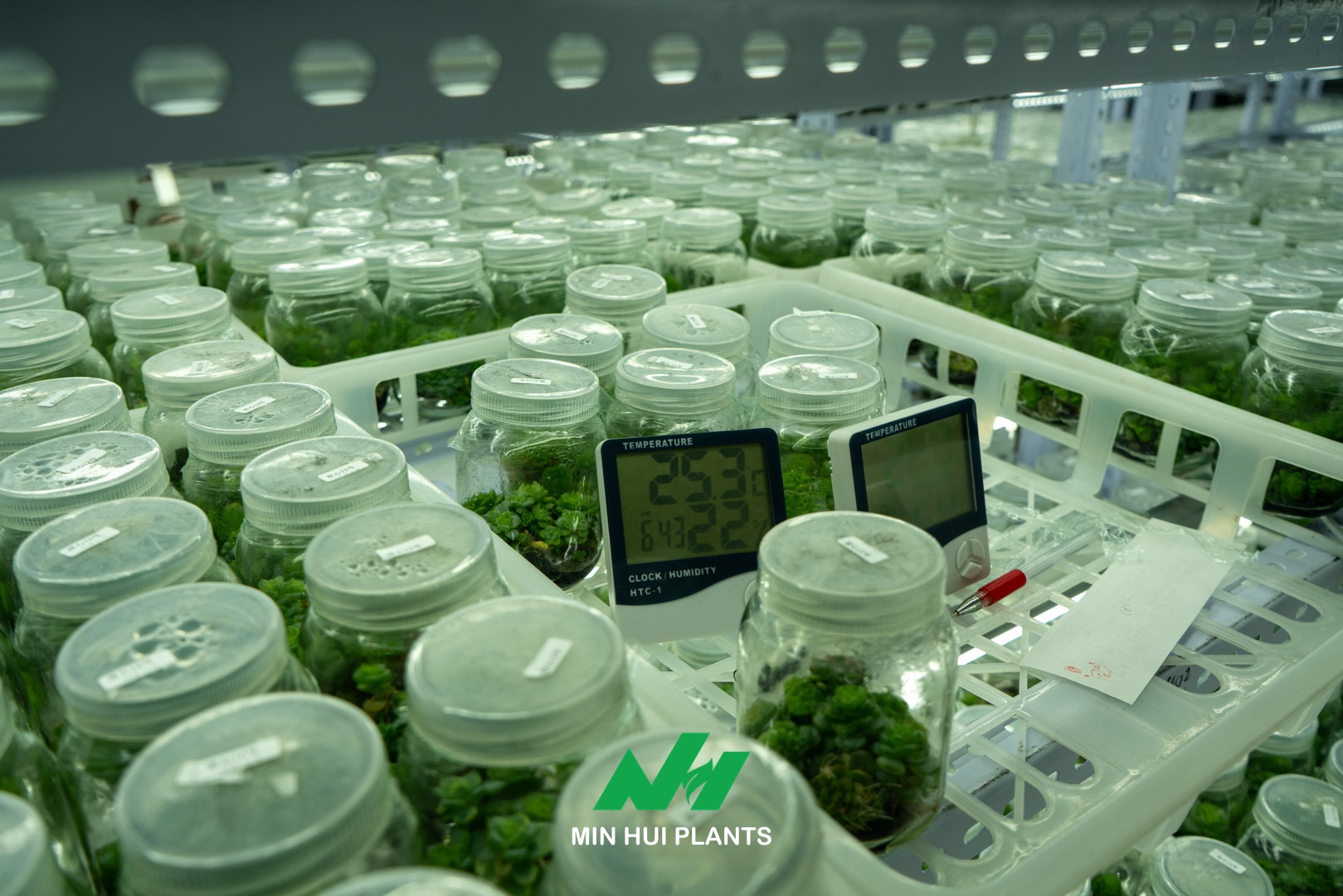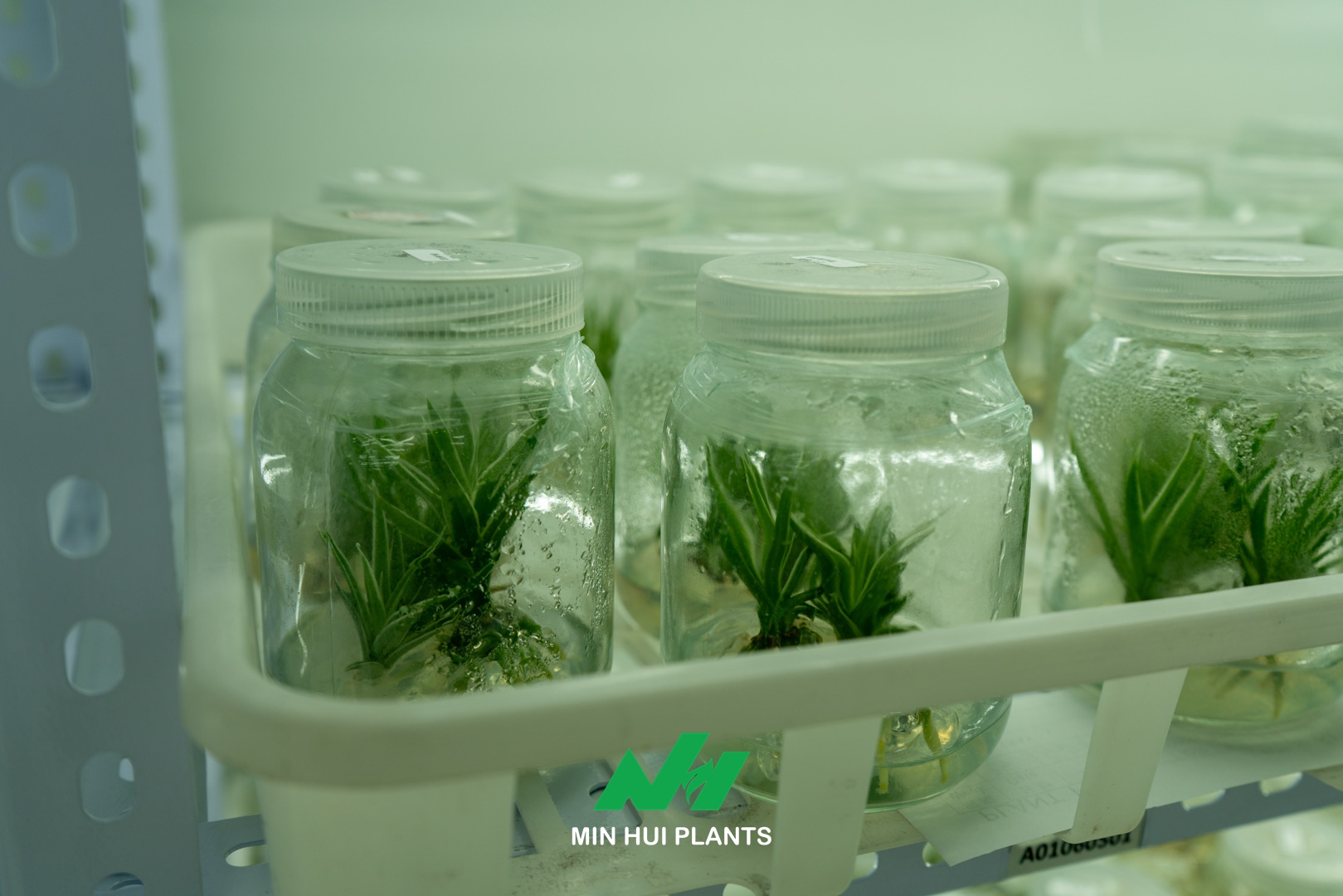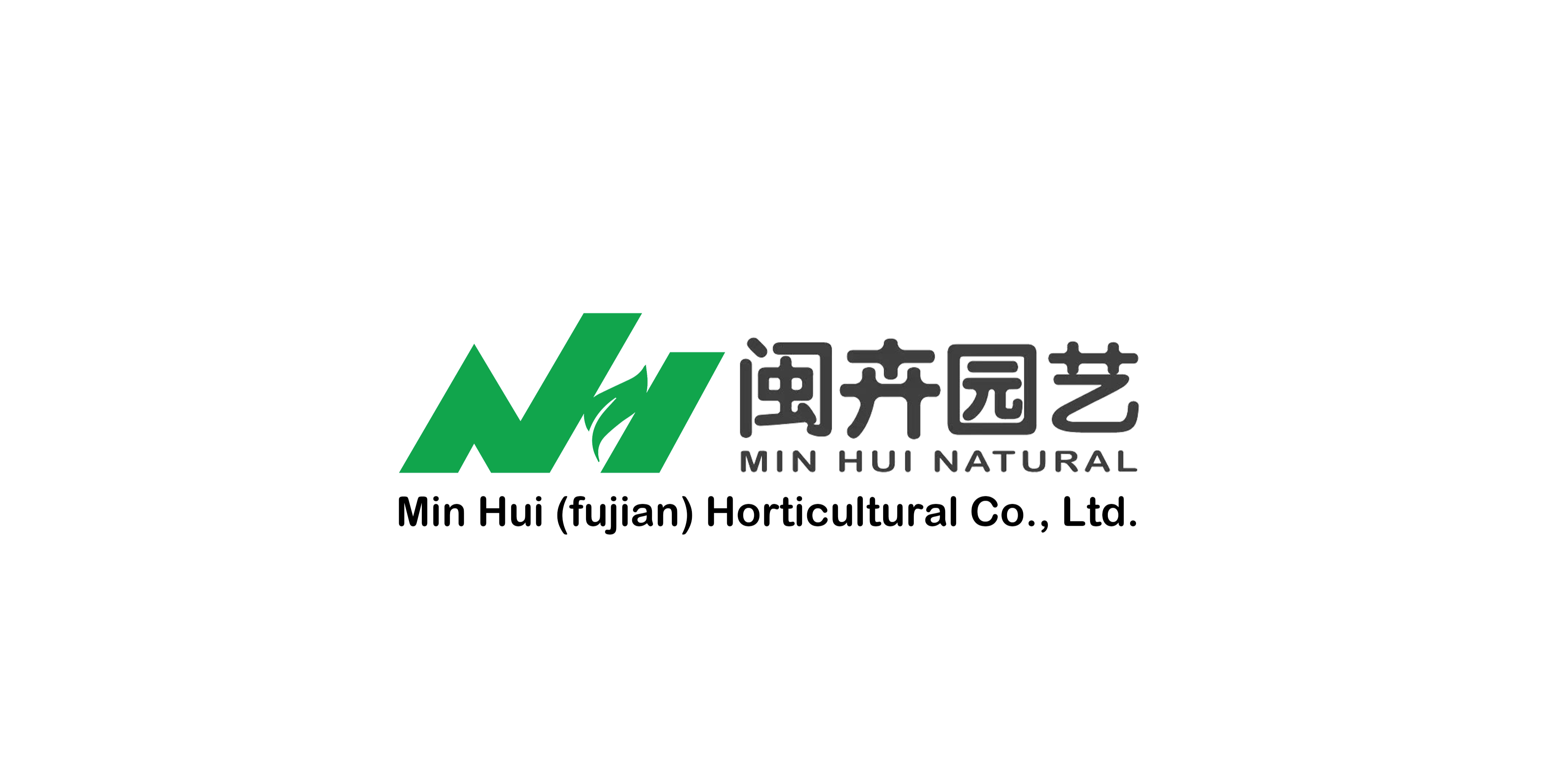What is plant tissue culture?
Author: Min Hui Plants 〡 Jul 05, 2025 〡 664
664Plant tissue culture is a cutting-edge technology used to propagate plants in a sterile, controlled environment. It involves growing new plants from small pieces of tissue (usually taken from stems, leaves or roots) under sterile laboratory conditions. But what does plant tissue culture really mean? And why has it become so important to plant wholesalers and growers around the world?
This technology can go from lab to mass production:
Tissue culture can quickly produce large quantities of uniform plants. Unlike traditional methods such as seed propagation or cuttings, this process guarantees genetic consistency and disease-free growth. As a result, tissue plant production has become a cornerstone of large-scale operations, especially for businesses specializing in greenhouse plant wholesale and landscape plant wholesale.
By enabling year-round propagation, tissue culture meets the market's growing demand for specialty varieties, especially succulents and rare plants that are difficult to source through traditional methods.
Game-changing technology for rare plant wholesalers:
For those involved in rare plant wholesale, tissue culture technology provides them with access to high-demand, scarce plants that can now be propagated in bulk without compromising quality. This is particularly valuable for plant wholesalers seeking to diversify their product offerings while maintaining consistent and healthy inventory.
Tissue culture technology also reduces the risks associated with plant imports, pests, diseases, and climate-related issues, making it an ideal solution for global trade and long-distance transportation.
